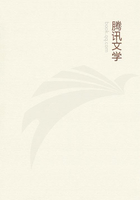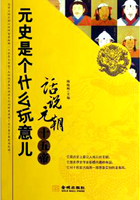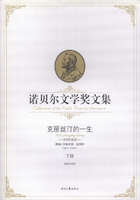He starts by accepting the general principle that all things are fated to decay (which I noticed in the case of Plato), and that 'as iron produces rust and as wood breeds the animals that destroy it, so every state has in it the seeds of its own corruption.' He is not, however, content to rest there, but proceeds to deal with the more immediate causes of revolutions, which he says are twofold in nature, either external or internal. Now, the former, depending as they do on the synchronous conjunction of other events outside the sphere of scientific estimation, are from their very character incalculable; but the latter, though assuming many forms, always result from the over-great preponderance of any single element to the detriment of the others, the rational law lying at the base of all varieties of political changes being that stability can result only from the statical equilibrium produced by the counteraction of opposing parts, since the more simple a constitution is the more it is insecure. Plato had pointed out before how the extreme liberty of a democracy always resulted in despotism, but Polybius analyses the law and shows the scientific principles on which it rests.
The doctrine of the instability of pure constitutions forms an important era in the philosophy of history. Its special applicability to the politics of our own day has been illustrated in the rise of the great Napoleon, when the French state had lost those divisions of caste and prejudice, of landed aristocracy and moneyed interest, institutions in which the vulgar see only barriers to Liberty but which are indeed the only possible defences against the coming of that periodic Sirius of politics, the [Greek text which cannot be reproduced].
There is a principle which Tocqueville never wearies of explaining, and which has been subsumed by Mr. Herbert Spencer under that general law common to all organic bodies which we call the Instability of the Homogeneous. The various manifestations of this law, as shown in the normal, regular revolutions and evolutions of the different forms of government, (8) are expounded with great clearness by Polybius, who claimed for his theory, in the Thucydidean spirit, that it is a [Greek text which cannot be reproduced], not a mere [Greek text which cannot be reproduced], and that a knowledge of it will enable the impartial observer (9)to discover at any time what period of its constitutional evolution any particular state has already reached and into what form it will be next differentiated, though possibly the exact time of the changes may be more or less uncertain. (10)Now in this necessarily incomplete account of the laws of political revolutions as expounded by Polybius enough perhaps has been said to show what is his true position in the rational development of the 'Idea' which I have called the Philosophy of History, because it is the unifying of history. Seen darkly as it is through the glass of religion in the pages of Herodotus, more metaphysical than scientific with Thucydides, Plato strove to seize it by the eagle-flight of speculation, to reach it with the eager grasp of a soul impatient of those slower and surer inductive methods which Aristotle, in his trenchant criticism of his greater master, showed were more brilliant than any vague theory, if the test of brilliancy is truth.
What then is the position of Polybius? Does any new method remain for him? Polybius was one of those many men who are born too late to be original. To Thucydides belongs the honour of being the first in the history of Greek thought to discern the supreme calm of law and order underlying the fitful storms of life, and Plato and Aristotle each represents a great new principle. To Polybius belongs the office - how noble an office he made it his writings show - of making more explicit the ideas which were implicit in his predecessors, of showing that they were of wider applicability and perhaps of deeper meaning than they had seemed before, of examining with more minuteness the laws which they had discovered, and finally of pointing out more clearly than any one had done the range of science and the means it offered for analysing the present and predicting what was to come. His office thus was to gather up what they had left, to give their principles new life by a wider application.
Polybius ends this great diapason of Greek thought. When the Philosophy of history appears next, as in Plutarch's tract on 'Why God's anger is delayed,' the pendulum of thought had swung back to where it began. His theory was introduced to the Romans under the cultured style of Cicero, and was welcomed by them as the philosophical panegyric of their state. The last notice of it in Latin literature is in the pages of Tacitus, who alludes to the stable polity formed out of these elements as a constitution easier to commend than to produce and in no case lasting. Yet Polybius had seen the future with no uncertain eye, and had prophesied the rise of the Empire from the unbalanced power of the ochlocracy fifty years and more before there was joy in the Julian household over the birth of that boy who, born to power as the champion of the people, died wearing the purple of a king.
No attitude of historical criticism is more important than the means by which the ancients attained to the philosophy of history.
The principle of heredity can be exemplified in literature as well as in organic life: Aristotle, Plato and Polybius are the lineal ancestors of Fichte and Hegel, of Vico and Cousin, of Montesquieu and Tocqueville.















